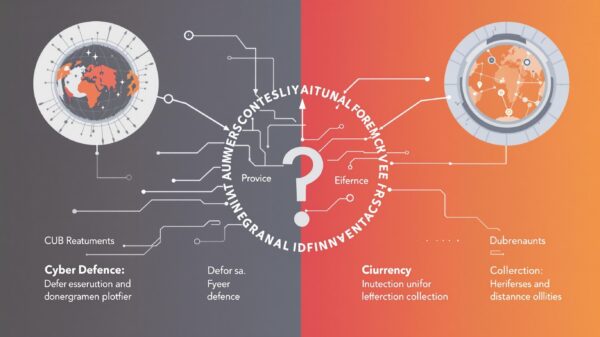In today’s digital age, cybersecurity has become a critical field for organizations worldwide. As cyber threats continue to evolve, the demand for skilled cybersecurity professionals has skyrocketed. One way to stand out in this competitive industry is by obtaining recognized cybersecurity certifications. This article will guide you through the best cybersecurity certifications to pursue in 2024, ensuring you stay ahead in your career.
Why Pursue Cybersecurity Certifications?
Cybersecurity certifications offer several benefits, including higher earning potential, job credibility, and continuous professional development. Certifications from reputable bodies demand ongoing training and networking, keeping professionals updated with the latest trends and technologies. This self-improvement loop not only enhances your skills but also ensures you remain valuable in the ever-changing cybersecurity landscape.
Top Cybersecurity Certifications for 2024
Certified Information Systems Security Professional (CISSP)
Provider: (ISC)²
Overview: The CISSP certification is one of the most sought-after credentials in the industry. It demonstrates your expertise in designing, implementing, and managing a cybersecurity program.
Who Should Get It: Experienced security professionals aiming for senior roles such as Chief Information Security Officer, Security Administrator, IT Security Engineer, and Senior Security Consultant.
Requirements: Five years of cumulative work experience in at least two of eight cybersecurity domains. A four-year degree can satisfy one year of the work requirement.
Cost: $749
Path to Certification: Beginners can become an Associate of (ISC)² by passing the exam and gaining the necessary experience within six years.
Certified Information Systems Auditor (CISA)
Provider: ISACA
Overview: The CISA certification validates your expertise in assessing security vulnerabilities, designing and implementing controls, and reporting on compliance.
Who Should Get It: Mid-level IT professionals seeking roles such as IT Audit Manager, Cybersecurity Auditor, Information Security Analyst, and Compliance Program Manager.
Requirements: Five years of experience in IT or IS audit, control, security, or assurance. Degrees can substitute for up to two years of experience.
Cost: $575 for members, $760 for non-members
Certified Information Security Manager (CISM)
Provider: ISACA
Overview: The CISM certification is tailored for information security management, covering governance, program development, and incident management.
Who Should Get It: Professionals transitioning to managerial roles, such as IT Manager, Information Systems Security Officer, and Director of Information Security.
Requirements: Five years of information security management experience, with allowances for other certifications or degrees to waive part of the requirement.
Cost: $575 for members, $760 for non-members

CompTIA Security+
Provider: CompTIA
Overview: This entry-level certification covers core cybersecurity skills, including assessing organizational security, monitoring environments, and responding to incidents.
Who Should Get It: Early-career professionals and those seeking roles like Systems Administrator, Help Desk Manager, and Security Engineer.
Requirements: No strict prerequisites, but Network+ certification and two years of IT experience are recommended.
Cost: $392
Certified Ethical Hacker (CEH)
Provider: EC-Council
Overview: The CEH certification focuses on ethical hacking, penetration testing, and proactive security measures.
Who Should Get It: Aspiring penetration testers, cyber incident analysts, and threat intelligence analysts.
Requirements: Two years of information security work experience or completion of an official EC-Council training.
Cost: $1,699 to $2,049
GIAC Security Essentials Certification (GSEC)
Provider: GIAC
Overview: The GSEC certification validates your ability to handle security tasks like active defense, network security, and incident response.
Who Should Get It: IT professionals with some background in information systems and networking.
Requirements: No specific requirements, but prior experience is beneficial.
Cost: $1,299
Systems Security Certified Practitioner (SSCP)
Provider: (ISC)²
Overview: The SSCP certification covers designing, implementing, and monitoring secure IT infrastructures.
Who Should Get It: IT professionals working hands-on with security systems, such as Network Security Engineers and System Administrators.
Requirements: One year of paid work experience in one or more of the testing areas, or a degree in a cybersecurity-related program.
Cost: $249
CompTIA Advanced Security Practitioner (CASP+)
Provider: CompTIA
Overview: CASP+ is designed for advanced cybersecurity professionals focusing on enterprise security, risk management, and cryptographic techniques.
Who Should Get It: Experienced professionals seeking roles like Security Architect, Security Engineer, and Vulnerability Analyst.
Requirements: Ten years of IT administration experience, including five years of hands-on security experience.
Cost: $494

GIAC Certified Incident Handler (GCIH)
Provider: GIAC
Overview: The GCIH certification covers incident handling, computer crime investigation, and hacker exploits.
Who Should Get It: Professionals in incident response roles, such as Security Incident Handlers and Security Architects.
Requirements: Understanding of security principles, networking protocols, and the Windows Command Line is recommended.
Cost: $949
Offensive Security Certified Professional (OSCP)
Provider: Offensive Security
Overview: The OSCP certification is highly regarded for penetration testing skills, involving a rigorous exam that tests your ability to compromise target machines.
Who Should Get It: Penetration testers, ethical hackers, and threat researchers.
Requirements: Familiarity with networking, Linux, Bash scripting, Perl or Python, and completion of the Penetration Testing with Kali course.
Cost: From $999
Conclusion
Obtaining cybersecurity certifications is an investment in your career, providing both immediate and long-term benefits. Whether you are just starting or looking to advance to senior positions, these certifications will enhance your skills and open up new job opportunities. Choose the certification that aligns with your career goals and current skill level, and take the next step towards becoming a highly sought-after cybersecurity professional.






















